Đừng bỏ lỡ những tính năng hấp dẫn của Baitap365.com
Đề thi học kì 2 Tiếng Anh 8 – Global Success
Đề thi học kì 2 Tiếng Anh 8 Global Success - Đề số 1
Đề thi học kì 2 Tiếng Anh 8 Global Success - Đề số 2 Đề thi học kì 2 Tiếng Anh 8 Global Success - Đề số 3 Đề thi học kì 2 Tiếng Anh 8 Global Success - Đề số 4 Đề thi học kì 2 Tiếng Anh 8 Global Success - Đề số 5 Đề cương ôn tập học kì 2 Tiếng Anh 8 - Global SuccessĐề thi học kì 2 Tiếng Anh 8 Global Success - Đề số 1
Exercise 1. You will hear five short conversations. You will hear each conversation twice. There is one question for each conversation. For questions 1-5, choose the right answer. Exercise 2. Listen to a conversation and complete the table. Exercise 3. Find the word which has a different sound in the underlined part. Exercise 4. Circle A, B, C or D for each gap in the following sentences. Exercise 5. Read the passage. Circle the best answer A, B or C to fill in the blank.
Listen then choose the right answers.
1. What do they need to buy?
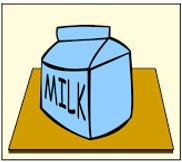
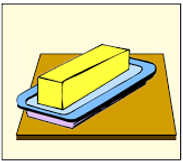
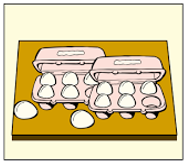
Đáp án của giáo viên lời giải hay : A
Kiến thức: Nghe hiểu
1.
What do they need to buy?
(Họ cần mua gì?)
Thông tin: But we ran out of milk last night.
(Nhưng tối qua chúng tôi hết sữa rồi.)
Chọn A
2. Where do they do their activity?
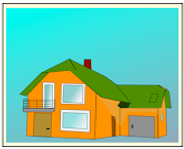
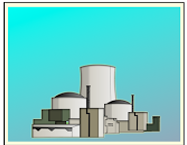
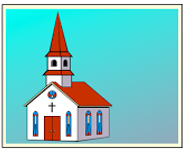
Đáp án của giáo viên lời giải hay : C
2.
Where do they do their activity?
(Họ thực hiện hoạt động của mình ở đâu?)
Thông tin: And before that, we used to practice in a derelict factory, which wasn't very exciting. But now the local church has been renovated and they have fantastic facilities.
(Và trước đó, chúng tôi từng tập luyện ở một nhà máy bỏ hoang, điều đó không mấy thú vị. Nhưng bây giờ nhà thờ địa phương đã được cải tạo và có cơ sở vật chất tuyệt vời.)
Chọn C
3. What cannot the speaker borrow?
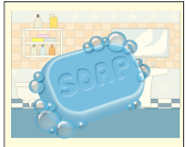
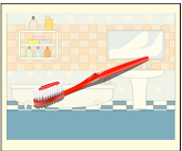
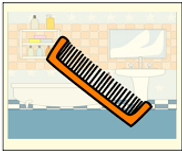
Đáp án của giáo viên lời giải hay : B
3.
What cannot the speaker borrow?
(Người nói không thể mượn cái gì?)
Thông tin: I don't have a toothbrush.- I can't help you there, sorry.
(Tôi không có bàn chải đánh răng.- Tôi không thể giúp bạn, xin lỗi)
Chọn B
4. Which shirt does the speaker prefer?
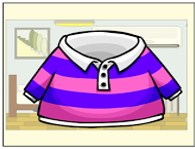
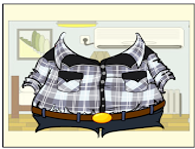
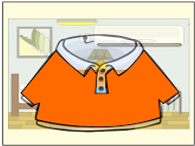
Đáp án của giáo viên lời giải hay : C
4.
What cannot the speaker borrow?
(Người nói thích chiếc áo nào hơn?)
Thông tin: The striped one isn't bad, and the one with squares is OK. But I'd go with the plain one if I were you.
(Cái có sọc không tệ, còn cái có hình vuông thì được. Nhưng tôi sẽ chọn cái đơn giản nếu tôi là bạn.)
Chọn C
5. Which animal were they able to visit?

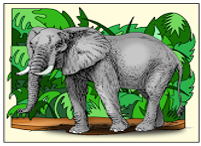
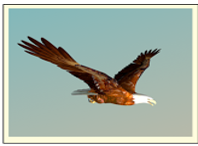
Đáp án của giáo viên lời giải hay : C
5.
What cannot the speaker borrow?
(Họ đã có thể đến thăm loài động vật nào?)
Thông tin: the lion and the elephant enclosures were closed for cleaning. So she couldn't see them. We saw a hunting display using Eagles instead, which was really good.
(chuồng sư tử và voi đã bị đóng cửa để dọn dẹp. Vì thế cô không thể nhìn thấy họ. Thay vào đó, chúng tôi đã thấy màn đi săn sử dụng Đại bàng, điều này thực sự rất hay.)
Chọn C
Bài nghe:
1.
A: Do you fancy making a chocolate cake this afternoon?
B: That's a great idea. Do we have everything we need? Let me have a look. So the recipe says we need eggs, butter, chocolate powder, flour and some milk. But we ran out of milk last night.
A: Not to worry, I'll go and get some now.
B: Great.
2.
A: I've joined a new youth club and they're teaching me judo.
B: Didn't you use to go to your friend's house to learn that?
A: Yes, I did. And before that, we used to practice in a derelict factory, which wasn't very exciting. But now the local church has been renovated and they have fantastic facilities.
B: Sounds incredible.
3.
A: Oh no, I forgot my bathroom stuff.
B: Don't worry, I can lend you mine. What do you need? I can give you my comb, my toothpaste, some soap, a hair brush. Whatever you need.
A: I don't have a toothbrush.
B: I can't help you there, sorry.
4.
A: I don't know which shirt goes best with these trousers.
B: Let me have a look. I'm really good with clothes. The striped one isn't bad, and the one with squares is OK. But I'd go with the plain one if I were you.
A: Yes, I think you're right. I'll do that then. Thanks a lot.
5.
A: How did you spend your day off yesterday? Did you do anything interesting?
B: My daughter loves lions, so we decided to take her to the zoo. We got there quite early, hoping to miss the queues. But unfortunately, the lion and the elephant enclosures were closed for cleaning. So she couldn't see them. We saw a hunting display using Eagles instead, which was really good. My daughter has a new favorite animal now.
Tạm dịch:
1.
A: Chiều nay bạn có thích làm bánh sô cô la không?
B: Đó là một ý tưởng tuyệt vời. Chúng ta có mọi thứ chúng ta cần không? Để tôi nhìn coi nào. Vì vậy, công thức nói rằng chúng ta cần trứng, bơ, bột sô cô la, bột mì và một ít sữa. Nhưng tối qua chúng ta hết sữa rồi.
A: Đừng lo lắng, tôi sẽ đi lấy một ít ngay bây giờ.
B: Tuyệt vời.
2.
A: Tôi vừa tham gia một câu lạc bộ thanh thiếu niên mới và họ đang dạy tôi judo.
B: Không phải cậu từng đến nhà bạn cậu để học điều đó sao?
A: Vâng, tôi đã làm vậy. Và trước đó, chúng tôi từng tập luyện ở một nhà máy bỏ hoang, điều đó không mấy thú vị. Nhưng bây giờ nhà thờ địa phương đã được cải tạo và có cơ sở vật chất tuyệt vời.
B: Nghe có vẻ khó tin.
3.
A: Ồ không, tôi quên đồ dùng trong phòng tắm.
B: Đừng lo lắng, tôi có thể cho bạn mượn của tôi. Bạn cần gì? Tôi có thể đưa cho bạn chiếc lược, kem đánh răng, một ít xà phòng, một chiếc lược chải tóc. Bất cứ thứ gì bạn cần.
A: Tôi không có bàn chải đánh răng.
B: Tôi không thể giúp bạn cái đó, xin lỗi.
4.
A: Tôi không biết cái áo nào hợp nhất với cái quần này.
B: Để tôi xem nào. Tôi thực sự giỏi về quần áo. Cái có sọc không tệ, còn cái có hình vuông thì được. Nhưng tôi sẽ chọn cái đơn giản nếu tôi là bạn.
A: Vâng, tôi nghĩ bạn đúng. Vậy thì tôi sẽ làm điều đó. Cảm ơn rất nhiều.
5.
A: Ngày nghỉ hôm qua của bạn thế nào? Bạn có làm điều gì thú vị không?
B: Con gái tôi rất thích sư tử nên chúng tôi quyết định đưa nó đi sở thú. Chúng tôi đến đó khá sớm, hy vọng sẽ bỏ lỡ hàng đợi. Nhưng thật không may, chuồng sư tử và voi đã bị đóng cửa để dọn dẹp. Vì thế cô không thể nhìn thấy họ. Thay vào đó, chúng tôi đã thấy màn đi săn sử dụng Đại bàng, điều này thực sự rất hay. Con gái tôi bây giờ có một con vật yêu thích mới.
Listen and complete questions 6 -10. You will hear the conversation twice.
|
JOB At: Jones Department Store
|
6. To sell
7. Begin work at
a.m.
8. Days: Tuesday to
9. Pay: £
per hour
10. Write to: Mrs
Bài nghe:
A: Jones Department store, can I help you?
B: Yes, please. I saw your job advertisement in the newspaper. Can you tell me about it?
A: Certainly, we want a shop assistant to work in our women's department - selling coats. It's a small department, but a busy one.
B: And what are the working hours?
A: Well, the shop opens at nine, but the assistants must start work at twenty to nine. They finished at three thirty.
B: Is that every day of the week?
A: We are closed on Mondays and we don't need any more staff on Saturday or Sunday. The job is four days a week from Tuesday to Friday.
B: And how much do assistants earn an hour?
A: At the moment, it's £5.27. I'm afraid we don't pay you for your lunch break.
B: That doesn't matter. I'd like the job.
A: Then you must send a letter to Mrs. Grable. That's G-R-A-B-L-E, before the end of the week.
B: Right, I'll do that. Thank you.
Tạm dịch:
A: Cửa hàng bách hóa Jones, tôi có thể giúp gì cho bạn?
B: Vâng, làm ơn. Tôi đã thấy quảng cáo việc làm của bạn trên báo. Bạn có thể cho tôi biết về nó không?
A: Chắc chắn, chúng tôi muốn một nhân viên bán hàng làm việc trong bộ phận phụ nữ của chúng tôi - bán áo khoác. Đó là một bộ phận nhỏ nhưng bận rộn.
B: Và giờ làm việc là bao nhiêu?
A: À, cửa hàng mở cửa lúc chín giờ, nhưng những người phục vụ phải bắt đầu làm việc lúc chín giờ kém hai mươi. Họ kết thúc lúc ba giờ ba mươi.
B: Đó có phải là mọi ngày trong tuần không?
A: Chúng tôi đóng cửa vào Thứ Hai và không cần thêm nhân viên vào Thứ Bảy hoặc Chủ Nhật. Công việc là bốn ngày một tuần từ thứ ba đến thứ sáu.
B: Và các trợ lý kiếm được bao nhiêu tiền một giờ?
A: Hiện tại, nó là £5,27. Tôi e rằng chúng tôi không trả tiền cho giờ nghỉ trưa của bạn.
B: Điều đó không quan trọng. Tôi muốn công việc này.
A: Vậy thì bạn phải gửi thư cho bà Grable. Đó là G-R-A-B-L-E, trước cuối tuần.
B: Đúng, tôi sẽ làm điều đó. Cảm ơn.
Circle A, B, C or D for each gap in the following sentences.
A(n) __________ is a violent tropical storm with very strong wind.
snowstorm
earthquake
volcano
typhoon
Đáp án : D
Kiến thức: Từ vựng
snowstorm (n): bão tuyết
earthquake (n): động đất
volcano (n): núi lửa
typhoon (n): bão
A typhoon is a violent tropical storm with very strong wind.
(Bão là một cơn bão nhiệt đới dữ dội với sức gió rất mạnh.)
Chọn D
Circle A, B, C or D for each gap in the following sentences.
During __________, shopping centres attract a lot of customers.
open hours
sales
office hours
flood
Đáp án : B
Kiến thức: Từ vựng
open hours (n): giờ mở cửa
sales (n): đợt giảm giá
office hours (n): giờ văn phòng
flood (n): lũ
During sales, shopping centres attract a lot of customers.
(Trong đợt giảm giá, các trung tâm mua sắm thu hút rất nhiều khách hàng.)
Chọn B
Circle A, B, C or D for each gap in the following sentences.
There are mainly two __________ of water pollution: man-made and natural.
ways
causes
reasons
results
Đáp án : B
Kiến thức: Từ vựng
ways (n): cách thức
causes (n): nguyên nhân
reasons (n): lý do
results (n): kết quả
There are mainly two causes of water pollution: man-made and natural.
(Chủ yếu có hai nguyên nhân gây ô nhiễm nước: do con người tạo ra và tự nhiên.)
Chọn B
Circle A, B, C or D for each gap in the following sentences.
We use face __________ systems to identify people in photos, videos, and in real time.
identification
recogntion
reminder
confirmation
Đáp án : B
Kiến thức: Từ vựng
identification (n): sự xác minh
recogntion (n): nhận dạng
reminder (n): nhắc nhở
confirmation (n): sự xác nhận
We use face recogntion systems to identify people in photos, videos, and in real time
(Chúng tôi sử dụng hệ thống nhận dạng khuôn mặt để nhận dạng mọi người trong ảnh, video và trong thời gian thực)
Chọn B
Circle A, B, C or D for each gap in the following sentences.
They did a series of laboratory __________ on human sleep patterns in 1960s.
experiments
assignments
examinations
discoveries
Đáp án : A
Kiến thức: Từ vựng
experiments (n): thí nghiệm
assignments (n): bài tập
examinations (n): bài kiểm tra
discoveries (n): khám phá
They did a series of laboratory experiments on human sleep patterns in 1960s.
(Họ đã thực hiện một loạt thí nghiệm trong phòng thí nghiệm về kiểu ngủ của con người vào những năm 1960.)
Chọn A
Circle A, B, C or D for each gap in the following sentences.
It is __________ easier to prevent harm to the environment than to repair it.
always
never
sometimes
rarely
Đáp án : A
Kiến thức: Trạng từ tần suất
always (adv): luôn luôn
never (adv): không bao giờ
sometimes (adv): thỉnh thoảng
rarely (adv): hiếm khi
It is always easier to prevent harm to the environment than to repair it.
(Việc ngăn ngừa tác hại đến môi trường luôn dễ dàng hơn là sửa chữa nó.)
Chọn A
Circle A, B, C or D for each gap in the following sentences.
I had no idea about the dangers of tsunamis __________ saw the film.
as soon as
while
when
till
Đáp án : D
Kiến thức: Trạng từ thời gian
as soon as: ngay khi
while: trong khi
when: khi
till: cho đến khi
I had no idea about the dangers of tsunamis till I saw the film.
(Tôi không biết gì về sự nguy hiểm của sóng thần cho đến khi xem bộ phim.)
Chọn D
Circle A, B, C or D for each gap in the following sentences.
We watched a __________ broadcast of the president’s speech.
live
living
liveable
alive
Đáp án : A
Kiến thức: Từ vựng – từ loại
live (adj): trực tiếp
living (v): sống
liveable (adj): có thể sống được
alive (adj): còn sống
We watched a live broadcast of the president’s speech.
(Chúng tôi đã xem buổi phát sóng trực tiếp bài phát biểu của tổng thống.)
Chọn A
Circle A, B, C or D for each gap in the following sentences.
I think we will find another habitable planet __________ 15 years.
on
for
by
in
Đáp án : D
Kiến thức: Giới từ
on: trên
for: cho
by: trước
in + khoảng thời gian: trong
I think we will find another habitable planet in 15 years.
(Tôi nghĩ chúng ta sẽ tìm thấy một hành tinh khác có thể sinh sống được sau 15 năm nữa.)
Chọn D
Circle A, B, C or D for each gap in the following sentences.
The teacher __________ me that I should spend more time studying science subjects.
said
told
asked
spoke
Đáp án : B
Kiến thức: Từ vựng
said + to: nói với ai
told + O: nói với ai
asked + O: yêu cầu ai
spoke + to O: nói với
The teacher told me that I should spend more time studying science subjects.
(Giáo viên nói với tôi rằng tôi nên dành nhiều thời gian hơn để học các môn khoa học.)
Chọn B
Read the passage. Circle the best answer A, B or C to fill in the blank.
Some volcanoes are always (21) __________. They are called active volcanoes. Mount Etna in Italy is an active (22) __________. Some volcanoes have not erupted since prehistoric times. These are (23) __________ extinct volcanoes. Most of the Hawaiian Islands are extinct volcanoes. These volcanoes no longer have a hot spot under them. They cannot erupt anymore. Some volcanoes have not erupted for a long time, but they could erupt again. These are called dormant volcanoes. (dormant: temporarily inactive)
Scientists try to figure out when volcanoes will erupt. Studying volcanoes is hard and dangerous work. Scientists drill into volcanoes. They make maps of the inside of the volcanoes. They use satellites to study volcanoes (24) __________ space. Scientists have been able to predict a few eruptions. But it is not (25) __________ to tell what a volcano might do.
erupting
running
going
meeting
Đáp án : A
Kiến thức: Từ vựng
erupting (v): phun trào
running (v): chạy
going (v): đi
meeting (v): gặp
Some volcanoes are always erupting.
(Một số núi lửa luôn phun trào.)
Chọn A
Read the passage. Circle the best answer A, B or C to fill in the blank.
Some volcanoes are always (21) __________. They are called active volcanoes. Mount Etna in Italy is an active (22) __________. Some volcanoes have not erupted since prehistoric times. These are (23) __________ extinct volcanoes. Most of the Hawaiian Islands are extinct volcanoes. These volcanoes no longer have a hot spot under them. They cannot erupt anymore. Some volcanoes have not erupted for a long time, but they could erupt again. These are called dormant volcanoes. (dormant: temporarily inactive)
Scientists try to figure out when volcanoes will erupt. Studying volcanoes is hard and dangerous work. Scientists drill into volcanoes. They make maps of the inside of the volcanoes. They use satellites to study volcanoes (24) __________ space. Scientists have been able to predict a few eruptions. But it is not (25) __________ to tell what a volcano might do.
mountain
volcano
river
earthquake
Đáp án : B
Kiến thức: Từ vựng
mountain (n): núi
volcano (n): núi lửa
river (n): sông
earthquake (n): động đất
Mount Etna in Italy is an active volcano.
(Núi Etna ở Ý là một ngọn núi lửa đang hoạt động.)
Chọn B
Read the passage. Circle the best answer A, B or C to fill in the blank.
Some volcanoes are always (21) __________. They are called active volcanoes. Mount Etna in Italy is an active (22) __________. Some volcanoes have not erupted since prehistoric times. These are (23) __________ extinct volcanoes. Most of the Hawaiian Islands are extinct volcanoes. These volcanoes no longer have a hot spot under them. They cannot erupt anymore. Some volcanoes have not erupted for a long time, but they could erupt again. These are called dormant volcanoes. (dormant: temporarily inactive)
Scientists try to figure out when volcanoes will erupt. Studying volcanoes is hard and dangerous work. Scientists drill into volcanoes. They make maps of the inside of the volcanoes. They use satellites to study volcanoes (24) __________ space. Scientists have been able to predict a few eruptions. But it is not (25) __________ to tell what a volcano might do.
named
thought
called
seen
Đáp án : C
Kiến thức: Từ vựng
named (v): đặt tên
thought (v): nghĩ
called (v): gọi
seen (v): gặp
These are called extinct volcanoes.
(Chúng được gọi là núi lửa đã tuyệt chủng.)
Chọn C
Read the passage. Circle the best answer A, B or C to fill in the blank.
Some volcanoes are always (21) __________. They are called active volcanoes. Mount Etna in Italy is an active (22) __________. Some volcanoes have not erupted since prehistoric times. These are (23) __________ extinct volcanoes. Most of the Hawaiian Islands are extinct volcanoes. These volcanoes no longer have a hot spot under them. They cannot erupt anymore. Some volcanoes have not erupted for a long time, but they could erupt again. These are called dormant volcanoes. (dormant: temporarily inactive)
Scientists try to figure out when volcanoes will erupt. Studying volcanoes is hard and dangerous work. Scientists drill into volcanoes. They make maps of the inside of the volcanoes. They use satellites to study volcanoes (24) __________ space. Scientists have been able to predict a few eruptions. But it is not (25) __________ to tell what a volcano might do.
in
from
into
near
Đáp án : B
Kiến thức: Giới từ
in: trong
from: từ
into: vào trong
near: gần
They use satellites to study volcanoes from space.
(Họ sử dụng vệ tinh để nghiên cứu núi lửa từ không gian.)
Chọn B
Read the passage. Circle the best answer A, B or C to fill in the blank.
Some volcanoes are always (21) __________. They are called active volcanoes. Mount Etna in Italy is an active (22) __________. Some volcanoes have not erupted since prehistoric times. These are (23) __________ extinct volcanoes. Most of the Hawaiian Islands are extinct volcanoes. These volcanoes no longer have a hot spot under them. They cannot erupt anymore. Some volcanoes have not erupted for a long time, but they could erupt again. These are called dormant volcanoes. (dormant: temporarily inactive)
Scientists try to figure out when volcanoes will erupt. Studying volcanoes is hard and dangerous work. Scientists drill into volcanoes. They make maps of the inside of the volcanoes. They use satellites to study volcanoes (24) __________ space. Scientists have been able to predict a few eruptions. But it is not (25) __________ to tell what a volcano might do.
easy
difficult
able
slow
Đáp án : A
Kiến thức: Từ vựng
easy (adj): dễ
difficult (adj): khó
able (adj): có khả năng
slow (adj): chậm
Scientists have been able to predict a few eruptions. But it is not easy to tell what a volcano might do.
(Các nhà khoa học đã có thể dự đoán một số vụ phun trào. Nhưng không dễ để biết núi lửa có thể làm gì.)
Chọn A
Read the passage. Circle the best answer A, B, C or D to each of the questions.
Everyday on radio, on TV, and in the newspaper, we hear, see or read about many problems in the world, for example, pollution problems.
Air pollution is the first kind. It mostly comes from fumes released from motorbikes, cars, airplanes, trains and poisonous gases emitted from factories. Also, waste is dumped anywhere, even in the city where many people are living. The second pollution problem is sea pollution. Many people earn their living from fishing in the sea, and the fish they catch feed many people. But the sea has become so polluted from oil spills and factory wastes that the fish are dying. This is not only killing the fish, but is also affecting those people who eat fish.
Seldom do you find a place nowadays that is not polluted. This problem is growing more difficult everyday. We must find a good solution that makes the world a better place to live.
We hear, see and read about problems in the world _________.
once a week
every day
every week
every year
Đáp án : B
Kiến thức: Đọc hiểu
Chúng ta nghe, nhìn và đọc về các vấn đề trên thế giới _________.
A. mỗi tuần một lần
B. mỗi ngày
C. mỗi tuần
D. mỗi năm
Thông tin: Everyday on radio, on TV, and in the newspaper, we hear, see or read about many problems in the world.
(Hàng ngày trên đài, tivi, báo chí, chúng ta nghe, thấy hoặc đọc về nhiều vấn đề trên thế giới.)
Chọn B
Read the passage. Circle the best answer A, B, C or D to each of the questions.
Everyday on radio, on TV, and in the newspaper, we hear, see or read about many problems in the world, for example, pollution problems.
Air pollution is the first kind. It mostly comes from fumes released from motorbikes, cars, airplanes, trains and poisonous gases emitted from factories. Also, waste is dumped anywhere, even in the city where many people are living. The second pollution problem is sea pollution. Many people earn their living from fishing in the sea, and the fish they catch feed many people. But the sea has become so polluted from oil spills and factory wastes that the fish are dying. This is not only killing the fish, but is also affecting those people who eat fish.
Seldom do you find a place nowadays that is not polluted. This problem is growing more difficult everyday. We must find a good solution that makes the world a better place to live.
What causes the air pollution?
fumes from vehicles
poisonous gases from factories
waste from everywhere
All are correct.
Đáp án : D
Nguyên nhân gây ô nhiễm không khí?
A. khói từ xe cộ
B. khí độc từ các nhà máy
C. chất thải từ khắp mọi nơi
D. Tất cả đều đúng.
Thông tin: It mostly comes from fumes released from motorbikes, cars, airplanes, trains and poisonous gases emitted from factories.
(Nó chủ yếu đến từ khói thải ra từ xe máy, ô tô, máy bay, tàu hỏa và khí độc thải ra từ các nhà máy.)
Chọn D
Read the passage. Circle the best answer A, B, C or D to each of the questions.
Everyday on radio, on TV, and in the newspaper, we hear, see or read about many problems in the world, for example, pollution problems.
Air pollution is the first kind. It mostly comes from fumes released from motorbikes, cars, airplanes, trains and poisonous gases emitted from factories. Also, waste is dumped anywhere, even in the city where many people are living. The second pollution problem is sea pollution. Many people earn their living from fishing in the sea, and the fish they catch feed many people. But the sea has become so polluted from oil spills and factory wastes that the fish are dying. This is not only killing the fish, but is also affecting those people who eat fish.
Seldom do you find a place nowadays that is not polluted. This problem is growing more difficult everyday. We must find a good solution that makes the world a better place to live.
The sea has become polluted because of _________.
oil spills
factories wastes
smoke from factories
A and B are correct
Đáp án : D
Biển đã bị ô nhiễm vì _________.
A. sự cố tràn dầu
B. chất thải nhà máy
C. khói từ nhà máy
D. A và B đúng
Thông tin: the sea has become so polluted from oil spills and factory wastes that the fish are dying
(biển đã trở nên ô nhiễm do sự cố tràn dầu và chất thải nhà máy đến nỗi cá đang chết dần)
Chọn D
Read the passage. Circle the best answer A, B, C or D to each of the questions.
Everyday on radio, on TV, and in the newspaper, we hear, see or read about many problems in the world, for example, pollution problems.
Air pollution is the first kind. It mostly comes from fumes released from motorbikes, cars, airplanes, trains and poisonous gases emitted from factories. Also, waste is dumped anywhere, even in the city where many people are living. The second pollution problem is sea pollution. Many people earn their living from fishing in the sea, and the fish they catch feed many people. But the sea has become so polluted from oil spills and factory wastes that the fish are dying. This is not only killing the fish, but is also affecting those people who eat fish.
Seldom do you find a place nowadays that is not polluted. This problem is growing more difficult everyday. We must find a good solution that makes the world a better place to live.
In order to make the world a better place to live, we _________.
should not prevent pollution
must find a good solution
should kill the fish
None is correct
Đáp án : B
Để biến thế giới thành một nơi tốt đẹp hơn để sống, chúng tôi _________.
A. không nên ngăn chặn ô nhiễm
B. phải tìm một giải pháp tốt
C. nên giết cá
D. Không có câu nào đúng
Thông tin: We must find a good solution that makes the world a better place to live.
(Chúng ta phải tìm ra một giải pháp tốt để biến thế giới thành một nơi tốt đẹp hơn để sinh sống.)
Chọn B
Read the passage. Circle the best answer A, B, C or D to each of the questions.
Everyday on radio, on TV, and in the newspaper, we hear, see or read about many problems in the world, for example, pollution problems.
Air pollution is the first kind. It mostly comes from fumes released from motorbikes, cars, airplanes, trains and poisonous gases emitted from factories. Also, waste is dumped anywhere, even in the city where many people are living. The second pollution problem is sea pollution. Many people earn their living from fishing in the sea, and the fish they catch feed many people. But the sea has become so polluted from oil spills and factory wastes that the fish are dying. This is not only killing the fish, but is also affecting those people who eat fish.
Seldom do you find a place nowadays that is not polluted. This problem is growing more difficult everyday. We must find a good solution that makes the world a better place to live.
The word “This” in the passage refers to _________.
pollution
oil
factory
sea
Đáp án : A
Từ “This” trong đoạn văn đề cập đến _________.
A. ô nhiễm
B. dầu
C. nhà máy
D. biển
Thông tin: But the sea has become so polluted from oil spills and factory wastes that the fish are dying. This is not only killing the fish, but is also affecting those people who eat fish.
(Nhưng biển đã trở nên ô nhiễm do sự cố tràn dầu và chất thải nhà máy đến nỗi cá đang chết dần. Điều này không chỉ làm chết cá mà còn ảnh hưởng đến những người ăn cá.)
Chọn A
Rewrite second sentences with the same meaning.
31. Because it rained heavily, we canceled the match.
It rained
.
32. Nick: “I come from a small town in England”.
Nick said that
.
33. Hoa said that she was reading a science fiction book about life on other planets then.
Hoa said “
".
34. We saw an accident on the way home.
While we were
.
35. Although the storm was terrible, no one was injured.
The storm
.
Choose the word marked A, B, C, or D that has a different stress pattern from the others.
referee
pioneer
Vietnamese
committee
Đáp án : D
Kiến thức: Trọng âm từ có 3 âm tiết
referee /ref.əˈriː/
pioneer /paɪ.əˈnɪər/
Vietnamese /vɪe.tnəˈmiːz/
committee /kəˈmɪt.i/
Phương án D có trọng âm 2, các phương án còn lại có trọng âm 3.
Chọn D
Choose the word marked A, B, C, or D that has a different stress pattern from the others.
alien
rocket
exist
crater
Đáp án : C
Kiến thức: Trọng âm từ có 2, 3 âm tiết
alien /ˈeɪ.li.ən/
rocket /ˈrɒk.ɪt/
exist /ɪɡˈzɪst/
crater /ˈkreɪ.tər/
Phương án C có trọng âm 2, các phương án còn lại có trọng âm 1.
Chọn C
Choose the word marked A, B, C, or D that has a different stress pattern from the others.
gravity
powerful
telescope
unhealthy
Đáp án : D
Kiến thức: Trọng âm từ có 3 âm tiết
gravity /ˈɡræv.ɪ.ti/
powerful /ˈpaʊ.ə.fəl/
telescope /ˈtel.ɪ.skəʊp/
unhealthy /ʌnˈhel.θi/
Phương án D có trọng âm 2, các phương án còn lại có trọng âm 1.
Chọn D
Choose the word marked A, B, C, or D that has a different stress pattern from the others.
social
trainee
private
crater
Đáp án : B
Kiến thức: Trọng âm từ có 2 âm tiết
social /ˈsəʊ.ʃəl/
trainee /treɪˈniː/
private /ˈpraɪ.vət/
crater /ˈkreɪ.tər/
Phương án B có trọng âm 2, các phương án còn lại có trọng âm 1.
Chọn B
Choose the word marked A, B, C, or D that has a different stress pattern from the others.
discovery
unsuitable
habitable
identity
Đáp án : C
Kiến thức: Trọng âm từ có 4 âm tiết
discovery /dɪˈskʌv.ər.i/
unsuitable /ʌnˈsuː.tə.bl/
habitable /ˈhæb.ɪ.tə.bl/
identity / aɪˈden.tɪ.ti/
Phương án C có trọng âm 2, các phương án còn lại có trọng âm 1.
Chọn C
Mẹo tìm đáp án nhanh
Search Google: "từ khóa + baitap365" Ví dụ: "Bài 5 trang 13 SGK Vật lí 12 baitap365